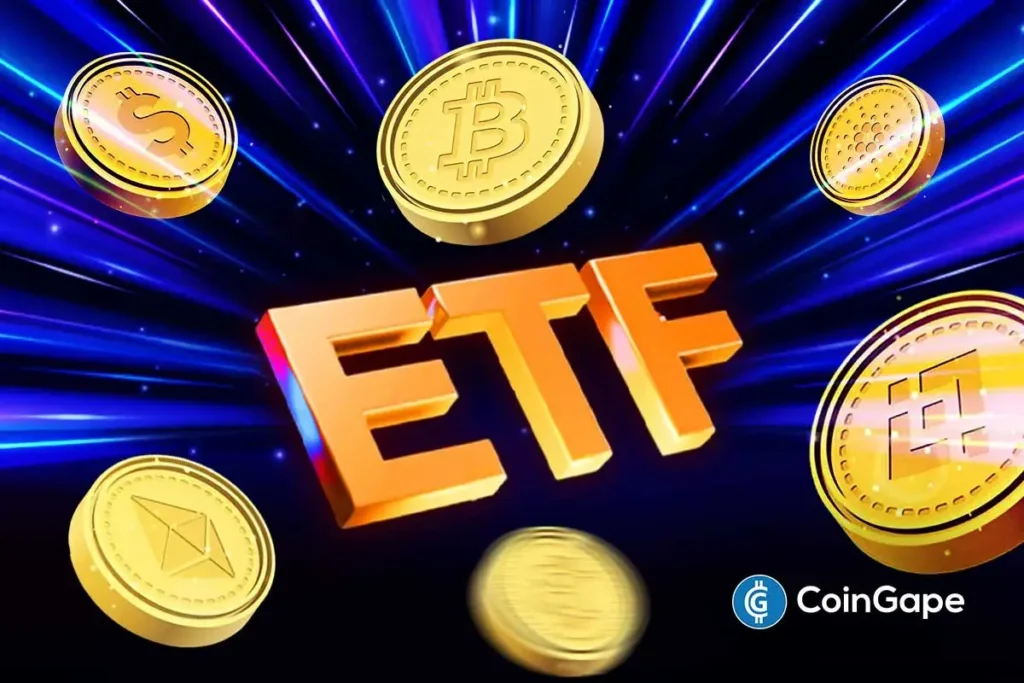The Future of Crypto ETFs: In-Kind Features on the Horizon
As the cryptocurrency landscape evolves, exciting developments are underway regarding exchange-traded funds (ETFs). Recently, five issuers submitted amendment filings to the U.S. Securities and Exchange Commission (SEC) aiming for the adoption of in-kind creation and redemption features in their crypto ETFs. Although the SEC has yet to grant approvals, Bloomberg analyst James Seyffart suggests that regulatory approval for these features is imminent, which could significantly impact how crypto ETFs operate.
Understanding In-Kind Creation and Redemption
In-kind features offer a transformative approach for crypto ETFs, allowing them to exchange assets directly instead of relying on cash transactions. This operational model is essential for economic efficiency, as it enables ETFs to sidestep capital gains taxes associated with selling crypto assets. Seyffart emphasizes the benefits that these features would provide, arguing that the approval of in-kind capabilities could usher in a more efficient trading environment for both current and future ETFs.
The five funds seeking SEC approval are Ark 21, VanEck, Invesco, WisdomTree, and Fidelity. Each of these issuers has recognized the potential of in-kind features to enhance the operational framework of their ETFs. The recent wave of amendment filings, according to Seyffart, signals a positive change in the SEC’s stance towards cryptocurrency ETFs, following a history of delays in granting approvals.
The SEC’s Changing Stance
The SEC, traditionally cautious about allowing cryptocurrency products to enter mainstream finance, appears to be softening its position. Under the leadership of Paul Atkins, the agency’s Crypto Task Force has initiated dialogues through roundtables with significant players in the cryptocurrency sector. This shift suggests an openness to understanding the complexities and potential advantages of crypto ETFs. In the wake of this evolving regulatory environment, Ethereum ETF daily inflows have recently set a record high of $717 million, showcasing increasing investor confidence in these financial products.
While changes are on the horizon, Seyffart clarifies that the introduction of in-kind features will not directly benefit retail investors. Only authorized participants, primarily institutional firms and market makers, can transact in the underlying assets of these ETFs. This aspect may limit the apparent impact on retail traders, who might not notice significant differences in their trading experiences.
A New Era of Operational Efficiency
If approved, the addition of in-kind features could significantly enhance the operational efficacy of crypto ETFs. By facilitating more efficient trading practices, these amendments could attract more institutional investment while solidifying the trust of current investors. Seyffart notes that, while these changes are poised to improve market efficiency, retail traders will continue to rely on the existing efficiency levels of currently available ETFs in the market.
This operational revolution is not limited to just Bitcoin and Ethereum. As the crypto ecosystem matures, several issuers are actively exploring the incorporation of staking features in their ETFs. The recent launch of the Rex-Osprey Solana ETF with staking functionality has set a precedent that others, including BlackRock, are keen to follow with their Ethereum ETF amendments. Such innovations underline the growing acceptance of cryptocurrencies as mainstream investment vehicles.
The Market’s Response
Despite the uncertainty surrounding the SEC’s approval process, the cryptocurrency market has shown resilience and an appetite for new products. The surge in daily inflows for Ethereum ETFs indicates a robust interest among institutional and retail investors alike. This trend reflects a general confidence in the long-term viability of crypto assets and the platforms that house them.
Investors are now closely monitoring these developments, eagerly awaiting clarity on the SEC’s decisions regarding in-kind features in crypto ETFs. A positive outcome could pave the way for more sophisticated financial products that broaden access to cryptocurrencies, diversifying portfolios and enhancing market dynamics.
Conclusion: Looking Ahead
As the crypto landscape continues to unfold, the potential approval of in-kind features for ETFs represents a pivotal moment. Investors and analysts alike are keenly observing the SEC’s actions and statements for insights into future trends. With institutional interest in crypto assets growing and an evolving regulatory framework, the cryptocurrency ETF market is poised for a transformative shift.
In summary, while the SEC’s approval for in-kind features is not guaranteed, the momentum generated by recent amendment filings and a more favorable regulatory attitude demonstrate a significant step towards embracing cryptocurrency within the mainstream financial landscape. As the market adapts to these potential innovations, the implications for both institutional and retail investors are profound, underscoring the need for ongoing vigilance and adaptability in this fast-evolving sector.















